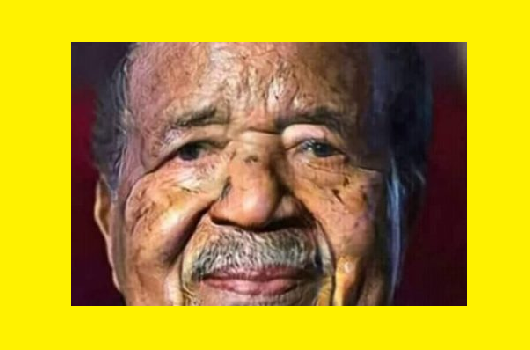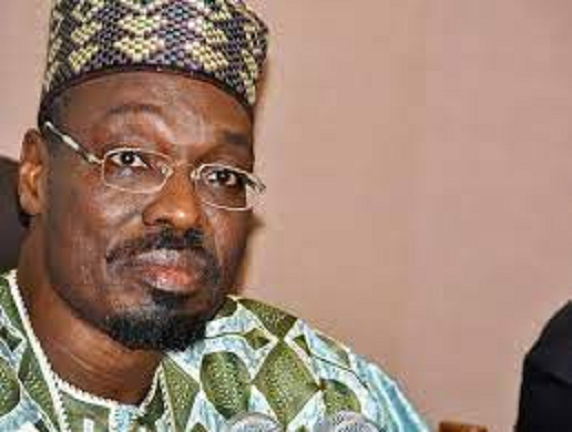By
Ola Olateju
As Cameroon teeters on the edge of another stolen mandate, the world must act decisively. The African Union, the United Nations, and democratic nations must compel the Constitutional Council to declare the true winner- Isa Tchiroma Bakary as reflected in the polling unit and regional tallies Anything less will endanger not only Cameroon but the future of democracy across Africa.

When the people of Cameroon trooped out to vote, they carried in their hearts a fragile yet persistent hope. A hope that their voices would finally be heard and their votes would finally matter. Across towns, cities, and rural villages, men and women defied fear and fatigue to cast their ballots in what they believed would be a new dawn. Their verdict was unmistakable: Isa Tchiroma Bakary emerged as the people’s clear choice. But just as the winds of change began to stir, the shadow of manipulation crept in. Now, the machinery of the state appears poised to rewrite the people’s decision, turning victory into betrayal.
This unfolding drama is not merely a domestic affair confined to Yaoundé. It is a test of Africa’s collective conscience and a moral trial for the global democratic order. Cameroon’s Constitutional Council stands before history, and the world watches to see whether it will honor the truth of the ballots or submit to the dictates of power.

Polling unit results and regional tallies, widely circulated and independently verified, show Tchiroma Bakary leading convincingly. These figures, visible to citizens and observers alike, reflect a decisive victory. Yet, the ruling establishment seems determined to alter the course of history by manipulating figures and distorting facts. Such an act would amount to an electoral coup; an assault on the people’s sovereignty and a dangerous precedent for the continent.
The African Union and the international community must not fold their arms while a nation’s destiny is rewritten in the dark. Silence is complicity. The AU must summon courage to intervene decisively, demanding that the Constitutional Council validate only the authentic results from the polling units. The United Nations, the United States, the European Union, and other global actors must refuse recognition of any government born from manipulation. The credibility of these institutions and of democracy itself depends on how they respond to Cameroon’s crisis.
The implications of tampering with the people’s choice extend far beyond Cameroon’s borders. A stolen mandate in Yaoundé would send a chilling message to every autocrat on the continent: that elections can be staged as formalities, their outcomes predetermined, and their legitimacy manufactured. It would reinforce the cynical notion that power in Africa is not earned through the ballot but captured through control of institutions.
Such a betrayal would erode public faith in democracy, breed apathy among voters, and embolden regimes that already govern through fear and deceit. The tragedy is not just political; it is generational. Young Africans who still believe in the promise of democracy would see yet another reason to despair or another justification for migration, rebellion, or resignation. The cost of silence, therefore, is nothing less than the collapse of democratic hope across the continent.
For Nigeria, the stakes are especially high. The road to the 2027 general elections runs through the moral lessons Africa learns from Cameroon today. If the world allows Cameroon’s ruling elite to override the people’s will, it will embolden similar tendencies among Nigeria’s power brokers. The 2027 polls could easily become another theatre of manipulation if autocrats observe that international outrage is mild and continental pressure nonexistent. What Cameroon loses in legitimacy today, Nigeria risks losing in 2027, that is, the faith of its citizens in the sanctity of their vote.
Cameroon and Nigeria share more than a border; they share intertwined destinies. Both are anchors of stability in their subregions and barometers of democratic health on the continent. If Cameroon’s institutions fall to manipulation, the domino effect could destabilize the moral foundation of elections across Africa. The credibility of ECOWAS, the AU, and all continental frameworks for good governance would be gravely compromised.
This is why every relevant actor must rise to the occasion. The AU must demonstrate that it is more than a ceremonial body issuing bland communiqués. It must act swiftly, boldly, and without equivocation. The UN must insist on accountability and transparency. The United States, European Union, and Commonwealth nations must back their democratic rhetoric with tangible consequences: non-recognition of fraudulent governments, targeted sanctions on electoral offenders, and robust diplomatic isolation of any regime that dares to subvert the people’s mandate.
Equally, the Cameroonian military and security forces must remember their oath. Their allegiance is to the republic, not to any ruler or party. They must refuse to turn their guns on peaceful citizens defending their votes. True patriotism, in moments like this, means defending the constitution — not the comfort of those who have overstayed their welcome in power.
Isa Tchiroma Bakary stands today not just as a candidate but as a symbol of the people’s resolve — the embodiment of their right to choose who governs them. Recognizing him as president-elect is not merely about personal victory; it is about the restoration of faith in Africa’s democratic promise. To deny him that recognition is to deny the Cameroonian people their voice, their dignity, and their future.
The world cannot afford another stolen mandate. Not in Cameroon. Not in Africa. Not now.
As history turns its gaze toward Yaoundé, the message must be clear and unwavering: the votes have been counted, the people have spoken, and Isa Tchiroma Bakary is the rightful president-elect of Cameroon. The African Union must lead the charge, and the global community must lend its voice. If the world fails to defend Cameroon’s democracy today, the flame of freedom will dim not just in one nation but across an entire continent yearning for genuine self-determination.
Cameroon’s moment of truth has come. How the world responds will define the future of democracy in Africa – and the moral integrity of those who claim to defend it.

